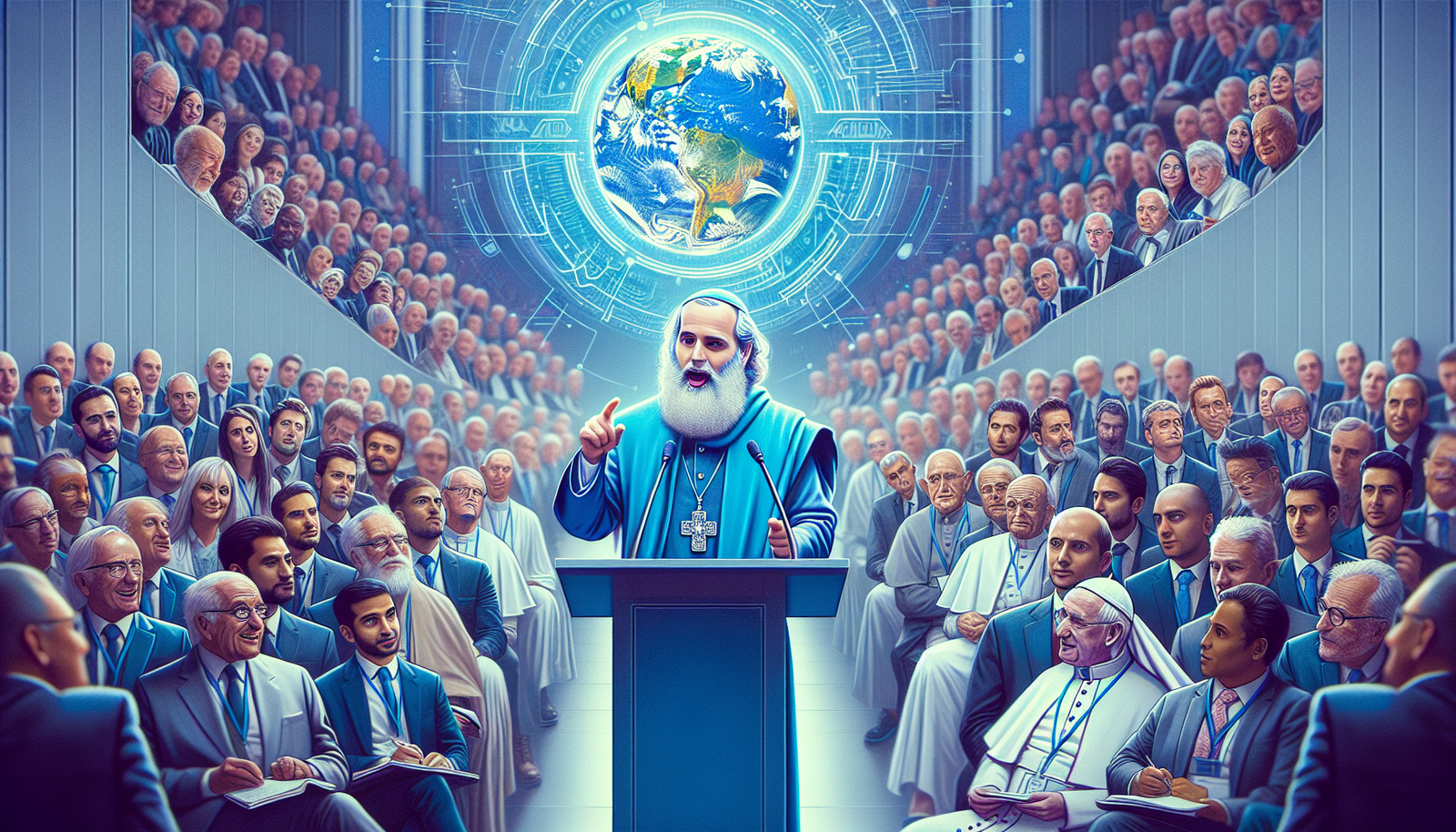The G7 summit in Italy will mark an unprecedented milestone as Pope Francis will speak on artificial intelligence. With a sharp focus on the moral implications of this technology, he expresses deep concerns. His speech calls for ethical reflection, in the face of the contemporary challenges posed by technological evolution. An ethical and cultural regulation is essential to ensure a future where humanity remains at the heart of innovations. Addressing AI from the perspective of human dignity becomes an unavoidable priority.
The historic participation of Pope Francis
Pope Francis will make an unprecedented appearance in June, joining the leaders of the seven nations at the G7 summit in Italy, which will take place in Borgo Egnazia. The meeting represents a symbolic turning point, as he will be the first pontiff to participate in such an international event.
Discussion on artificial intelligence
Francis will focus on the major issue of artificial intelligence, a subject he has approached with increasing concern. Italian Prime Minister Giorgia Meloni has expressed her belief in the significant contribution that the Holy Father will bring to this theme. The emphasis will be on the necessity of establishing an ethical framework in the face of the challenges posed by AI.
Francis’s ethical concerns
The Pope has previously expressed the urgency of reflecting on the moral implications of technology. He notably emphasized that humans “risk, in the pursuit of absolute freedom, falling into the spiral of technological dictatorship.” Francis calls for an examination of the limits that humanity must impose on itself in the field of technological development.
Regulations and international initiatives
Innovative legislation on AI has been adopted by the European Union, aiming to promote responsible development. Francis had already emphasized in December 2023 the necessity of a binding treaty to regulate this technology. The desire to frame AI with ethical standards has become a transnational issue.
The consequences of AI in society
The implications of AI are vast, including risks of misinformation and interference in political processes. Pope Francis has mentioned “misinformation campaigns” and their destructive potential, highlighting the vulnerability of modern societies to these challenges.
Reflections on the role of technology
In 2019, the Pope introduced the concept of “algor-ethics,” a call to apply ethical standards during the development of algorithms. This reflection on the relations between humans and machines remains more relevant than ever. Recent developments show that societies must balance technological progress with human values.
The impact of AI on public perception
This summit presents a unique opportunity to raise public awareness about the issues associated with the evolution of artificial intelligence. The discussions could transform the collective perception of what technological development entails. Engaging leaders in deep reflection could lead to significant changes in the governance of AI.
Strategic position of technology
Technological advancements often come with moral dilemmas. In the face of rising ethical concerns, Pope Francis takes a clear stance: he calls for global unity to frame these technologies. His voice at the G7 summit is likely to attract attention, marking a turning point in the history of ethics regarding AI.
Frequently Asked Questions
Why will Pope Francis address artificial intelligence at the G7 summit in Italy?
Pope Francis wishes to raise awareness among G7 leaders about the ethical and social implications of artificial intelligence, emphasizing the need for a regulatory framework to prevent potential abuses of this technology.
What role does Pope Francis hope to play in discussions about artificial intelligence?
He hopes to make a significant contribution to defining an ethical and cultural approach to the development and use of artificial intelligence, ensuring it serves humanity.
What are Pope Francis’s main concerns regarding artificial intelligence?
He expresses concerns about the risks of misinformation, interference in electoral processes, and the dangers of a technological dictatorship resulting from a limitless quest for human freedom.
How can artificial intelligence influence society, according to Pope Francis?
Pope Francis highlights that if not regulated, artificial intelligence could exacerbate social inequalities, generate biases, and influence decisions that profoundly affect individuals’ lives.
What is Pope Francis’s position on the regulation of artificial intelligence?
He calls for the adoption of a binding international treaty to frame artificial intelligence, insisting on the importance of integrating ethical considerations into its developments.
What message does Pope Francis wish to convey to global leaders at the G7?
He seeks to encourage them to reflect on their responsibilities in the face of the challenges posed by artificial intelligence and to collaborate to create a future where technology serves the common good.
How has Pope Francis been involved in the debate on artificial intelligence before this summit?
Pope Francis has regularly expressed his views on the evolution of artificial intelligence, calling for an ethical framework for technologies and highlighting the need for collective reflection on their impacts.
What kinds of solutions might Pope Francis suggest regarding artificial intelligence?
He might propose solutions based on interfaith dialogue and engagement with various stakeholders to develop ethical standards and appropriate legislative frameworks.






